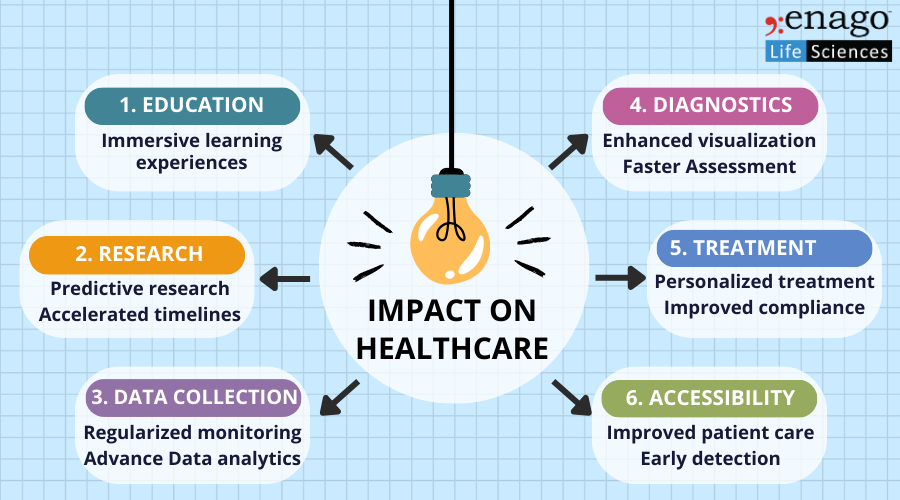Unlocking the mysteries of tomorrow’s healthcare: Unveiling groundbreaking medical advancements that will redefine the future of medicine.

Image courtesy of Pixabay via Pexels
Table of Contents
In today’s fast-paced and ever-evolving world, medical research has become a beacon of hope, providing us with groundbreaking discoveries and innovative solutions to the most pressing healthcare challenges. This feature will delve into the realm of medical research, exploring the forefront of new and evolving healthcare research work. Join us on this captivating journey as we explore the transformative potential of emerging technologies, novel treatment approaches, and the collaborative efforts of researchers worldwide.
Exploring the Frontiers of Medical Research
Unearthing the Potential of Precision Medicine
Precision medicine has emerged as a paradigm shift in healthcare, offering a personalized approach to treatment and disease management. By integrating genetic research and targeted therapies, precision medicine empowers healthcare providers to tailor treatments to individual patients, leading to improved outcomes and reduced side effects.
Advancements in genetic technology have allowed scientists to unravel the mysteries of our DNA, identifying specific genes and genetic variations associated with various diseases. Armed with this knowledge, researchers can devise tailored therapies that directly target the underlying causes of diseases, rather than simply managing symptoms.
Another exciting aspect of precision medicine is the use of predictive analytics. By analyzing large datasets and utilizing artificial intelligence, researchers can develop models that predict disease progression and identify individuals who are at high risk for developing certain conditions. This enables early intervention and proactive disease management, ultimately leading to better patient outcomes.
Novel Diagnostic Approaches
Diagnostic techniques have also seen significant advancements in recent years, revolutionizing the way diseases are detected and monitored. One such breakthrough is the concept of liquid biopsies, which involve testing blood samples for the presence of tumor-specific DNA or circulating tumor cells. This non-invasive approach could potentially lead to early cancer detection, enabling timely intervention and higher survival rates.
Additionally, the identification and utilization of biomarkers have brought about a new era of diagnostic precision. Biomarkers are measurable indicators of biological processes or conditions, and they play a crucial role in diagnosing diseases, tracking treatment response, and monitoring disease progression. With the aid of biomarkers, healthcare professionals can make more accurate diagnoses, choose appropriate treatment strategies, and assess the effectiveness of therapies.
Harnessing the Power of Artificial Intelligence
Artificial Intelligence (AI) has emerged as a game-changer in healthcare, revolutionizing both diagnosis and treatment. Machine learning algorithms are now being used to analyze medical images, aiding doctors in the detection and interpretation of complex visual data. This results in faster and more accurate diagnoses, ensuring timely interventions for patients.
AI is also maximizing healthcare efficiency through automation. Administrative tasks that were once time-consuming and prone to human error can now be handled by AI systems, freeing up healthcare professionals to focus on patient care. Additionally, AI virtual assistants are being developed to assist in monitoring patient conditions, ensuring continuous care and support.
Innovative Technologies Shaping the Future of Healthcare
One of the most exciting advancements in medical research is the gene-editing technology known as CRISPR. CRISPR has the potential to revolutionize healthcare by allowing scientists to modify genes with unprecedented precision. This technology holds promise not only for treating genetic diseases but also for preventing them from being passed on to future generations.

Image courtesy of lifesciences.enago.com via Google Images
CRISPR has already shown successful results in preclinical trials for conditions such as sickle cell disease and certain types of blindness. However, the ethical implications of gene editing are still widely debated, and careful consideration must be given to ensure responsible use of this powerful tool.
Robotics in Healthcare
Robotic technologies are making significant strides in reshaping the healthcare landscape. In surgery, robotic assistants are enhancing precision and reducing invasiveness, allowing for minimally invasive procedures, shorter recovery times, and improved patient outcomes. These robotic systems work hand-in-hand with surgeons, providing better visualization and greater control during complex surgeries.
Beyond the operating room, robotics are also playing a vital role in patient care. Robotic-assisted rehabilitation and physiotherapy are revolutionizing the recovery process by providing personalized, targeted exercises and continuous monitoring. Additionally, companion robots are being developed to provide companionship and support for the elderly and individuals with disabilities, enhancing their quality of life and overall well-being.
Collaborative Research Initiatives
The recent COVID-19 pandemic has showcased the power of collaborative research initiatives in combating global health crises. Scientists and researchers from around the world have joined forces to accelerate vaccine development, resulting in the production of effective vaccines in record time.
Collaborative networks have been established to streamline clinical trials and share data, enabling rapid progress in vaccine development. Furthermore, mRNA technology has emerged as a groundbreaking approach, bringing a new era of vaccine development by utilizing the body’s own cellular machinery to produce the necessary immune response.
Another crucial aspect of pandemic response is the use of digital surveillance systems. By leveraging data analytics and artificial intelligence, these systems can track outbreaks in real-time, offer predictive models for disease spread, and aid in resource allocation and containment strategies.
Conclusion
As medical research continues to push boundaries, we stand on the precipice of a healthcare revolution that holds immense promise for patients and providers alike. Precision medicine, artificial intelligence, innovative technologies, and collaborative research initiatives are reshaping the future of healthcare.
With precision medicine, treatments can be tailored to individual patients, offering better outcomes and improving quality of life. Meanwhile, artificial intelligence is enhancing diagnostic accuracy and efficiency, while also streamlining administrative tasks and providing virtual support for patient care.
Emerging technologies like CRISPR and robotics hold incredible potential to transform the way we treat diseases and enhance patient care. Finally, global collaborative research efforts are enabling expedited responses to pandemics and other global health challenges, leading to faster vaccine development and disease control.
As we embrace these exciting advancements, it is crucial to consider the ethical implications and ensure responsible use of these technologies. With continued collaboration and innovation, we can unlock the full potential of medical research and pave the way towards a healthier future for all.
Powered by Texta.ai Blog Automation
